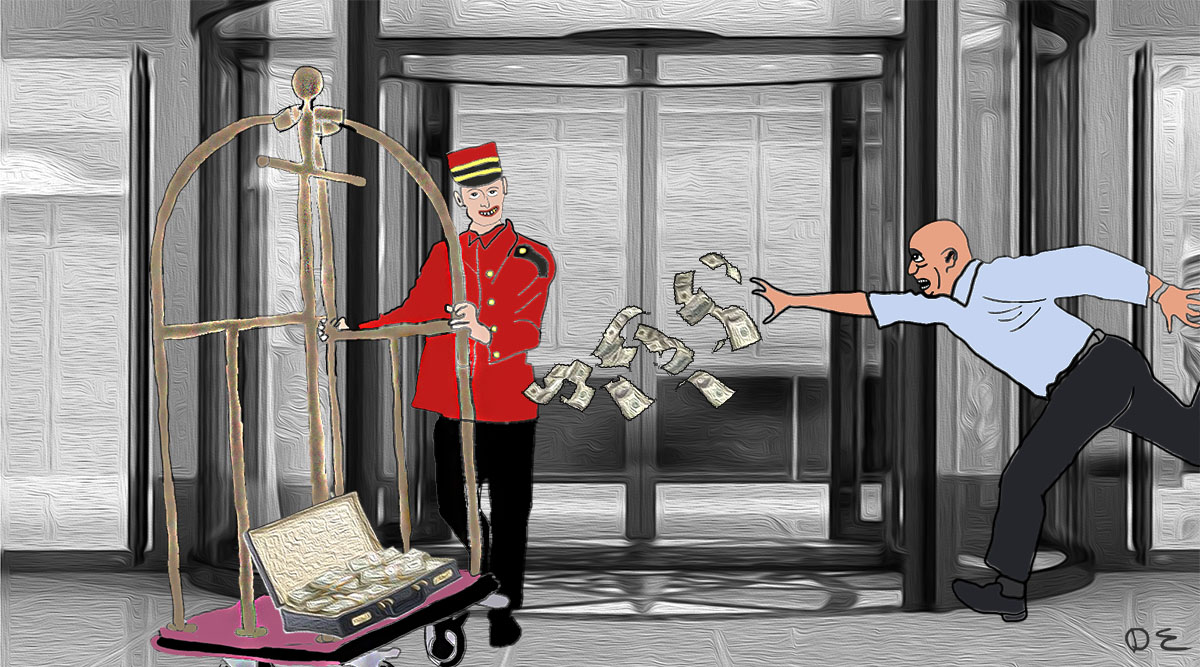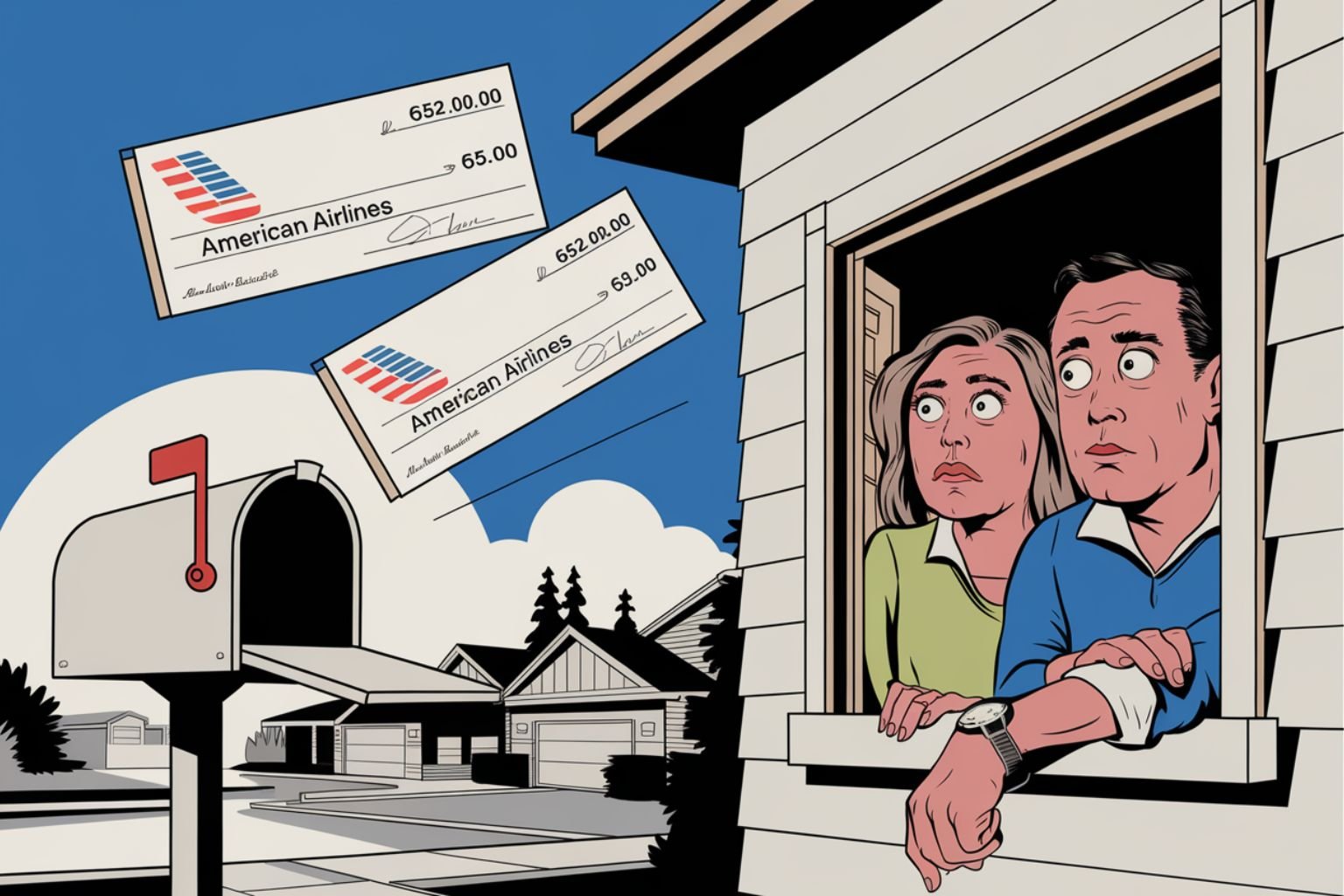Carol Egan thought she was doing the right thing when she booked an expensive and nonrefundable room at a Hampton Inn. After all, she was coming to Wetumpka, Ala., for a special occasion, and she was just following the instructions for the event.
But the instructions were incorrect, leaving her with a $264 overcharge on her hotel bill. Now she wants our help getting a refund for her nonrefundable room.
Even in the best of circumstances, bending a hotel refund rule is difficult. Is her request even in the realm of possibility?
Egan’s case is a reminder to look twice and book once, especially now. But it also reaffirms the power of self-advocacy, which is something we promote here at Elliott Advocacy.
How she ended up with a nonrefundable room
So how did Egan get a nonrefundable hotel room? Her grandniece was getting married in April. She and her fiance had made arrangements for family members traveling to Alabama to stay at a nearby Hampton Inn. They sent details in an email to their family.
“When we clicked on the link, it opened up a webpage listing the rooms available for the wedding dates in the special block with a nonrefundable rate of $264,” she explains.
That’s about twice the normal room rate.
“We thought the rate was high, but we followed the wedding party’s instructions,” says Egan.
It turns out it was too high.
“Two days later, we got a call from the bride’s mother informing us that our room rate was supposed to be $149 and instructing us to call the manager at the Hampton Inn to get it straightened out,” she says.
No, we can’t modify this nonrefundable room
So Egan phoned the hotel to find out if she could fix the reservation.
“In that call, we found out that other guests had filled the room allocations for the wedding, “So it quoted the $264 price.”
In other words, Egan’s grandniece had reserved a block of rooms at $149 each. The block filled up, so Hampton started quoting the next highest rate.
And yes, it’s still nonrefundable.
“The manager said he could not modify or cancel the reservation since I made it on the Hilton website. He gave us a number for Hilton and suggested that they could cancel or change our reservation,” she says. (Hilton owns Hampton Inn.)
So Egan called Hilton corporate.
“We requested that they modify the reservation to be the wedding block rate of $149 or cancel and refund the reservation,” she says. “We got nowhere.” (Related: How to get a refund from your hotel — even when it doesn’t want to give you one.)
Well, almost nowhere.
“They did offer to cancel the reservation and give us 12 months to use the whole $264 for a booking at another Hilton property,” she says.
But Egan said no.
“We don’t plan on booking any $264 per night rooms during the next 12 months,” she says.
What does Hampton Inn mean by “nonrefundable?”
Hampton Inn offers two basic types of rates: Flexible and Non-Refundable.
What’s the difference? Flexible rates have no special restrictions and follow the hotel’s standard guarantee and cancellation policy.
“Non-Refundable rates are exclusive offers that require full prepayment at the time of booking and is nonrefundable,” according to Hilton.
Normally, hotels offer a small discount (between 10 percent and 20 percent) to make the room nonrefundable. But in Egan’s case, But in Egan’s case, the Hampton Inn almost doubled the price — and the room was still nonrefundable.
Years ago, every hotel room was fully refundable. But hotels took a page from the airline playbook and started to make more of their rates nonrefundable. There are benefits to the hotel. It reduces cancellations and improves cash flow.
Research by Fornova has found that roughly half of all hotel room rates are nonrefundable. During the pandemic, hotels eased some of their policies, allowing for more “free” cancellations. But it’s likely that in a post-pandemic era, more properties will start displaying nonrefundable rates.
From a consumer point of view, nonrefundable hotel rates are bad. It’s particularly irritating when hotels still reserve the right to overbook. If the property is full, a hotel will “walk” you to another hotel without hesitation, if you’re lucky. That’s a problematic double standard.
How to make sure you don’t accidentally book a nonrefundable room at the Hampton Inn
Be extra careful when you’re booking a room. It offers more than just a choice between flexible and nonrefundable.
When you search the Hampton site, it will take you to a screen with various room types and rates. But it won’t show you the refundability options until you click on the next screen.
If you see the words “Non-Refundable,” click away. It means that once you book, you’re stuck with the room.
Hampton also offers a range of flexibility options. Here’s a “Semi-Flex” rate for a hotel in Dallas. It’s kind of a hybrid — not completely refundable, but if you let the hotel know you’re not coming within five days of your stay, you can get your money back.
For phone bookings, you’ll want to ask the agent about the refundability of the room. Ask for it in writing. Contact the hotel immediately if there’s a discrepancy between what the agent said and the written terms. (And if the hotel doesn’t respond, you have a case for a credit card dispute — although that wouldn’t be my first option.)
Questions to ask when your hotel room is nonrefundable
If you ever find yourself with a nonrefundable hotel room that you don’t want, here are a few questions you should ask:
What are the terms of your nonrefundable room? Some hotels really mean nonrefundable when they say nonrefundable. If you don’t show up on the night of your stay, you lose the money. But many hotels will offer a credit for up to one year from the date of your booking, much like airlines. If you have a nonrefundable hotel room, you’ll want to find out the exact terms.
Is it prepaid or nonrefundable? There’s a difference. If you prepay for a room, you’ve already given the hotel your money. Nonrefundable may mean the hotel has your credit card and will charge it on the first day of your booking, whether or not you show up. Who takes the money, and when, is relevant when you try to file a credit card chargeback under the Fair Credit Billing Act. You have 60 days from the time you receive your credit card bill to dispute a charge.
Did they disclose the nonrefundability? This is critical. Most hotels are clear about their terms when you book online. But if you book by phone, your agent may not review all the rules. As you know, I’m a proponent of recording phone calls where legal. If your agent didn’t say the room was nonrefundable, and you later discover it is, you might have a strong case for a refund.
Asking these questions can help you find refund loopholes. But there’s one more strategy that almost always works.
Can this nonrefundable room rate at Hampton Inn get refunded?
But what about Egan’s hotel room? When we reviewed her case, it looked hopeless.
She had agreed to a nonrefundable room at a major hotel chain. The property was standing behind its policy. It didn’t matter that she booked a higher room rate by what she says was an “accident.”
A deal’s a deal.
Or is it?
Egan isn’t a sophisticated business traveler. She’s a wedding guest. She followed all the instructions her grandniece had sent her and ended up paying an absurdly high room rate — a rate almost everyone concedes she shouldn’t have had to pay.
Shouldn’t there be some way to get Hilton to look at her situation again? (Related: Oh no! Will I ever get my money back from Barcelo?)
There is. You can appeal to the executive contacts for Hilton. A brief, polite email might nudge the Hampton Inn into taking another look at this erroneous rate. Dwayne, one of our advocates, recommended that Egan contact Hilton at the executive level. And she did.
By the way, you can do all of this yourself by following my free guide on booking a hotel room.
Here’s your refund for your nonrefundable Hampton Inn hotel room
Shortly after reaching out to Hilton, she received the following email:
I am in receipt of your email to the Executive Office of Hilton regarding your reservation at the Hampton Inn Wetumpka. I left you a voice message at 9:23 AM CST. So sorry I missed you.
I apologize for any inconvenience and how you stated your concerns were addressed.
Kindly note that there are specific cancellation policies in place for Advance Purchase Non-Refundable reservations.
Our customer service and hotel agents could not modify or refund as per protocol. However, as a one-time exception and gesture of good faith, I have requested a refund by corporate check on your behalf for $264.59. It will be mailed to your address on file. Please allow 30 business days for processing and mailing.
We at Hilton thank you for bringing this matter to our attention and hope that this does not deter you from staying with our Brands in the future.
Egan says she’s pleased with that resolution. She managed to book a room at the same hotel for a lower rate and got the refund she wanted. Remember, when it comes to a consumer dispute, the most effective advocate isn’t me or a member of my team or a lawyer — it’s you.
Egan took matters into her own hands and negotiated the refund she deserved. And so can you.
About the art
Artist Dustin Elliott says for this piece, he was inspired by the Wes Anderson film Grand Budapest Hotel and all the shenanigans that happen in a hotel lobby. “Here depicted is a bellboy running off with someone else’s hard-earned money,” he says.




